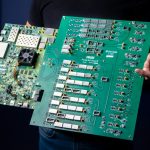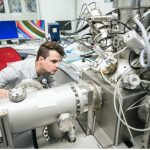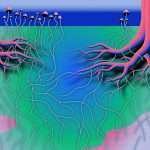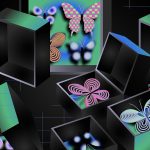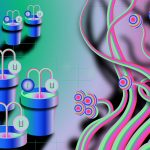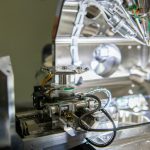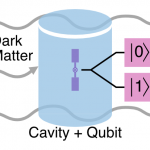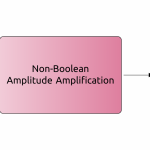Quantum computing experiments now have a new control and readout electronics option that will significantly improve performance while replacing cumbersome and expensive systems. Developed by a team of engineers at Fermilab in collaboration with the University of Chicago, the Quantum Instrumentation Control Kit, or QICK for short, is easily scalable.
qubits
Scientists at the Fermilab-led SQMS Center investigate qubits at the atomic level to identify sources of various impurities. By having a deeper understanding of how impurities affect how long a qubit can store information, scientists will be able to figure out how to further improve the performance of quantum computers.
From Pioneering Minds, April 20, 2021: Qubits will help advance the search for dark matter, as co-authored in a paper by Fermilab’s Aaron Chou.
To fully realize the potential of quantum computing, scientists must start with the basics: developing step-by-step procedures, or algorithms, for quantum computers to perform simple tasks. A Fermilab scientist has done just that, announcing two new algorithms that build upon existing work in the field to further diversify the types of problems quantum computers can solve.
From TicinOnline (Switzerland), March 31, 2021: Fermilab’s Panagiotis Spentzouris and a team of scientists were able to transfer two qubits for the first time, according to an article published in the American Physical Society’s journal PRX Quantum.

